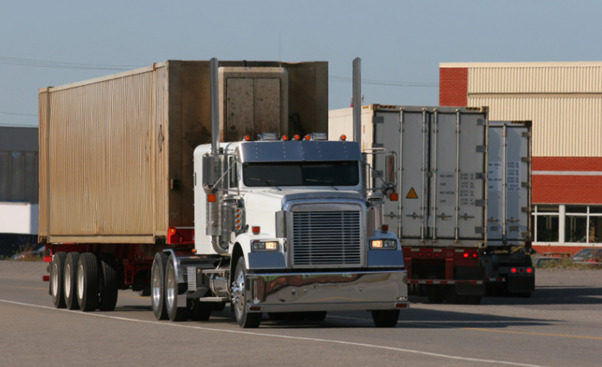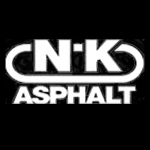Choosing asphalt for your new commercial driveway comes with many benefits from durability and flexibility of the material to longevity not to mention the fact that your customers and staff can use your parking lot or driveaway almost immediately. When designing a driveway for commercial purposes, it is important to ensure that the driveway is built to withstand the weight of cars and heavy trucks. Proper design and construction are crucial to safeguard the lifespan of your asphalt driveway.
A heavy truck could damage your new driveway if you do not pay enough attention to the materials and techniques described here for a quality asphalt driveway installation.
Recycled asphalt when used in traffic areas can result in a loose aggregate surface that may need regular reworking / maintenance in future.
Can Trucks Drive on Asphalt?
The majority of roads in heavier traffic areas are surfaced with hot asphalt.
A major component of a long-lasting driveway for heavy duty trucks is the underlying base. It must have the right thickness and composition to ensure maximum durability for heavy vehicles.
Base materials can be granite roadbase, crushed gravel, or limestone, which are compacted to form a hard surface that does not crack easily. Crushed coarse materials compact and lock together in a tough, settle-resistant matrix.
The right base material under the asphalt surface is essential for heavy trucks to drive on asphalt without damaging it.
How Thick Should Asphalt Be for Trucks?
If your driveway or parking lot is not paved to the proper thickness suitable for commercial purposes, your asphalt will likely begin to deteriorate prematurely.
In areas prone to heavy-duty vehicle traffic, you should consider installing thicker asphalt sections to protect the lifespan of your asphalt driveway surfaces.
Make sure you schedule regular maintenance works and fix any cracks promptly as the base underneath can suffer extensive damage beneath the weighty burden of large vehicles.
How Thick Should Asphalt Be for Trucks? As a rule of thumb, commercial driveways should use 40mm to 60mm asphalt over a suitably designed granular base aggregate.
Asphalt driveways which will see larger trucks drive on them on a frequent basis, will most likely require asphalt thicknesses up to 60mm with heavy duty commercial lots sometimes requiring two layers of asphalt.
Asphalt driveways that trucks can drive on require a significant investment of time and money. And ensuring the proper thickness is essential to protect your investment.
Durable Hardstand Construction

Asphalt hardstands are needed for trucks and storage of heavy equipment and loads.
Are you looking to park heavy vehicles on industrial, boat, car sale yards or vehicle depots? Do you need durable material for your driveway near you warehouse to store pallets and containers?
Installing a hardstand using asphalt ensures that the area can withstand high traffic from cars, machinery, and heavy-duty vehicles.
An asphalt hardstand is a mixture of aggregate with a bitumen binder, mixed at a high temperature that is laid over a compacted base material.
Hardstands using asphalt are commonly found at airports, freight terminals and other facilities where heavy vehicles need to be parked for long periods of time.
Not only does it improve the look of the area but protects the vehicles and machinery from the damage they may incur from chipped, cracked or sinking surfaces.
The new asphalt surface will give a consistent even surface, with no loose aggregate created when under traffic, unlike recycled asphalt which will loosen over time.
Reputable Asphalt Contractors
The commercial asphalt industry has more than its share of unreliable and untrustworthy contractors. The first step on your to do list is to find a reputable asphalt driveway contractor to do the job.
If you have delivery trucks, buses or other large commercial vehicles that will be utilising your driveway on a regular basis, make sure you let the contractor know so they can help you design the right type of asphalt surface for your needs.
Get a Perth asphalt quote today
If your job is 200m2 or more and in the Perth or surrounding areas.
share


